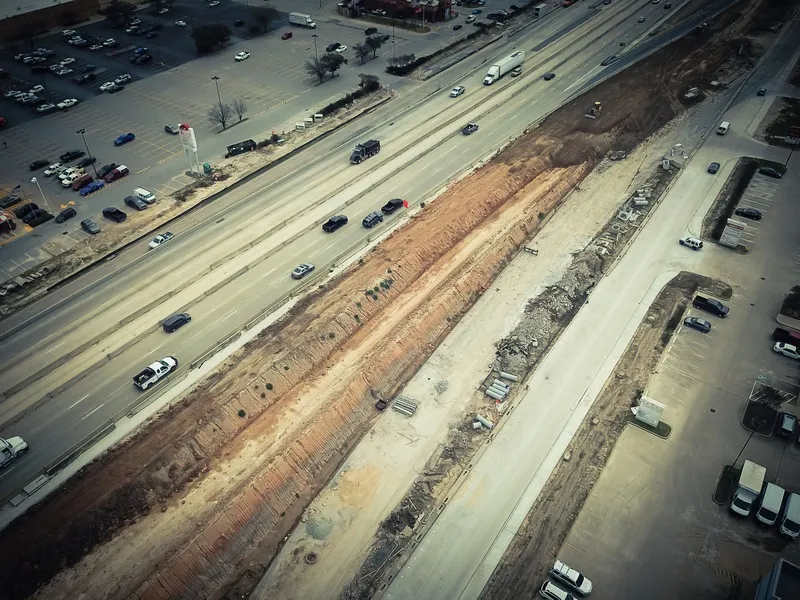EU Member States will in future have the right to apply the polluter-pays principle when setting road tolls on trucks and lorries. They will be able to levy charges for external costs and vary tariffs in order to ease congestion during peak hours and to encourage fleet renewal. Earmarking of revenues for transport infrastructure was the key point of an informal deal reached on Monday evening between Parliament and Council representatives on the revised Eurovignette directive.
May 16, 2012
Read time: 2 mins
EU Member States will in future have the right to apply the polluter-pays principle when setting road tolls on trucks and lorries. They will be able to levy charges for external costs and vary tariffs in order to ease congestion during peak hours and to encourage fleet renewal. Earmarking of revenues for transport infrastructure was the key point of an informal deal reached on Monday evening between Parliament and Council representatives on the revised Eurovignette directive.
A compromise was hammered out on the contentious issue of earmarking toll revenues. "We now have a strong commitment from the Member States to reinvest the money in sustainable transport and spend at least 15 per cent on TEN-T [Trans European Transport Network] projects", said Parliament's rapporteur Said El Khadraoui, reporting back to the Transport Committee on Tuesday.
In particular in mountain areas, where extra mark-ups may be added to infrastructure and external costs for older lorries with engines of Euro class 0, 1, 2 and 3 (starting in 2015), all revenue will have to be spent on financing TEN-T infrastructure projects situated on the same TEN corridor.
But the most important progress, according to Said El Khadraoui, has been made on the transparency of revenues and investment, based on the ETS (Emissions Trading Scheme) model. Member States will have to report back to the Commission on a regular basis on the various types of toll income, variations applied and how they have invested the money. This could prompt a fruitful public debate on transport infrastructure, financing and management at Member State level.
To allow better traffic management without generating extra revenues, toll variations will be allowed of up to 175 per cent in congested areas, with top tariffs collected during a maximum of five peak hours per day and lower tariffs applying the rest of the time. For the benefit of users, Parliament's negotiating team successfully pushed for a simple, clear and interoperable system and insisted that a User Guide be issued.
"This is not the end of the road", said El Khadraoui, "but it's an important step forward. I hope that Parliament can support the deal so that Member States can make the best use of the directive." Parliament's plenary vote is scheduled on 7 June.
A compromise was hammered out on the contentious issue of earmarking toll revenues. "We now have a strong commitment from the Member States to reinvest the money in sustainable transport and spend at least 15 per cent on TEN-T [Trans European Transport Network] projects", said Parliament's rapporteur Said El Khadraoui, reporting back to the Transport Committee on Tuesday.
In particular in mountain areas, where extra mark-ups may be added to infrastructure and external costs for older lorries with engines of Euro class 0, 1, 2 and 3 (starting in 2015), all revenue will have to be spent on financing TEN-T infrastructure projects situated on the same TEN corridor.
But the most important progress, according to Said El Khadraoui, has been made on the transparency of revenues and investment, based on the ETS (Emissions Trading Scheme) model. Member States will have to report back to the Commission on a regular basis on the various types of toll income, variations applied and how they have invested the money. This could prompt a fruitful public debate on transport infrastructure, financing and management at Member State level.
To allow better traffic management without generating extra revenues, toll variations will be allowed of up to 175 per cent in congested areas, with top tariffs collected during a maximum of five peak hours per day and lower tariffs applying the rest of the time. For the benefit of users, Parliament's negotiating team successfully pushed for a simple, clear and interoperable system and insisted that a User Guide be issued.
"This is not the end of the road", said El Khadraoui, "but it's an important step forward. I hope that Parliament can support the deal so that Member States can make the best use of the directive." Parliament's plenary vote is scheduled on 7 June.









